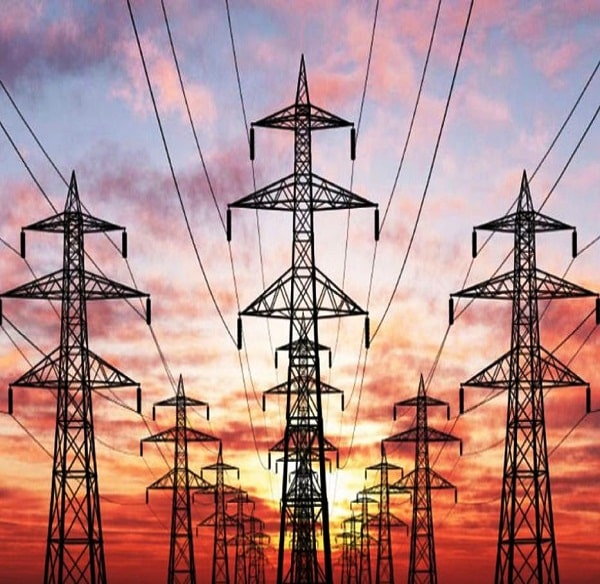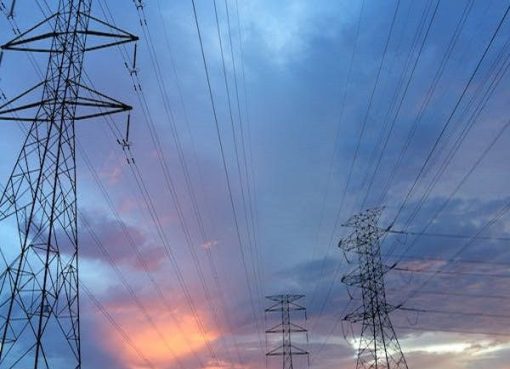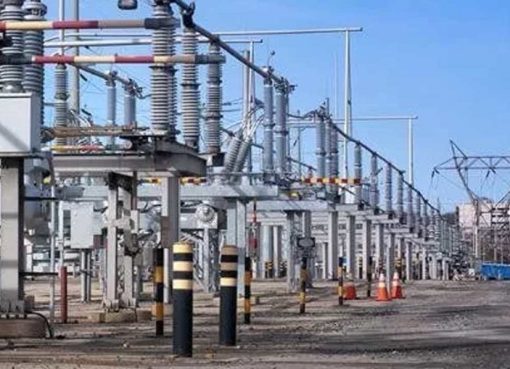Nigeria’s Honourable Minister of State for Labour recently announced an agreement between the Federal Government and Organised Labour on the ongoing dispute around the implementation of the tariff adjustments which recently came into effect in the power sector.
The highlight of the communique was the announcement of a cumulative tariff subsidy of about N10.20 per kilowatt-hour which would be distributed amongst customers in bands A – C of the distribution network (customers guaranteed a minimum daily supply of at least 12 hours). This subsidy (referred to as tariff relief) in the communique is expected to be funded by Value Added Tax (VAT) collections from the Nigerian Electricity Supply Industry (NESI). The communique does not contain details of how the relief would be applied or funded. Its issuance, however, provides an opportune moment to consider the workings of VAT in the NESI and its peculiar challenges.
VAT and the NESI – The Ideal Scenario
About 87% of the total installed grid capacity in Nigeria today is from gas fired plants. Nigeria has significant gas reserves so it is unlikely that this would change soon. The sale of gas to generating companies, was until recently (depending on which side you are on – I will expound on this shortly), liable to VAT. Generating companies (Gencos) should however be able to recover any VAT paid to the gas producing companies (Gascos) from that charged and collected on invoices issued to the Nigerian Bulk Electricity Trading Company (NBET) or any other off taker. Therefore, the VAT paid to the gas producers should not be a cost to the Gencos and should have no impact on tariffs.
NBET is also not going to recognize a VAT expense as it is not the final consumer of the commodity and should recover fully, its VAT cost from that charged and collected from the Distribution companies (Discos). The Discos are also not final consumers, so, are expected to recover the VAT paid over to NBET from that charged and collected from end-users. The balance (if any) is what is then paid to the Federal Inland Revenue Service (FIRS) and is what constitute the VAT collection from the NESI which is referred to in the communique. The total amount paid to the FIRS across the value chain should be equal to the VAT paid by the final consumers to the Discos.
The situation however is far from ideal. There are peculiar challenges which has impacted the application of VAT in the NESI and this must be taken into consideration in discussing the tariff models and options for adjustment.
Electricity – a good or service?
This is a challenge, although one which has been reasonably resolved in favour of electricity being a good rather than a service. Gencos produce electricity through highly specialized equipment using gas as raw material. This electricity is thereafter sold to a whole seller who in turn sells to several smaller distributors or retailers for onward sale to the final consumers. This is similar to the distribution models in the fast-moving consumer goods sector, and therefore, there is no reason why VAT in the power sector should be treated differently. This issue only arose because of the limitations in our VAT system which restricts the claim of input VAT to only goods purchased for sale or for use in the manufacture of a new product on which the tax is charged.
VAT incurred on any other item including all services should be expensed. Companies which expense VAT are only able to derive a tax benefit of about 32% of the amount incurred rather than 100% where they can recover it as input VAT. It is therefore important that all players continue to treat electricity as a good rather than a service due to the potential additional cost and impact on tariffs.
The author has comprehensively discussed the issue of electricity as a good in a previous article and would recommend it to interested parties.
VAT Exemption on Gas Sold
The Minister of Finance recently issued a VAT modification order which exempts the sale of gas from VAT. The VAT Act authorizes the Minister to issue such an order. However, the validity of the exemption has since been challenged by the Government Agency responsible for its administration, the FIRS. The FIRS issued a circular wherein they claimed that the inclusion of gas amongst the items exempted from VAT in the modification order was erroneous. They therefore opined in the circular that the exemption was not in effect, given the error.
We are not privy to the inner workings of the Ministry of Finance and the FIRS and the conversations that may have taken place between both parties before the issuance of the circular. However, there is no place in the VAT Act for FIRS circulars in matters relating to the exemption of items from the tax. The Minister of Finance is the party so empowered by law and to the extent that the office of the Minister of Finance has not withdrawn the Order or issued any counter Order, we believe that gas today should enjoy the exemption.
Notwithstanding, given that the Office of the Minister of Finance has not clarified the issue, several Gascos have continued to charge VAT on gas supplied to Gencos.
It is also important to note that the application of the Order will not on its own resolve the VAT challenges in the NESI. It would only resolve that at the Gencos level as they and NBET would still be obliged to charge VAT on power generated and sold.
Deduction of VAT at Source Refund Mechanism
Nigeria’s VAT Act places an obligation on Government and its agencies to withhold VAT at source. NBET qualifies as a Government agency and so is not expected to pay any VAT charged by the Gencos to them. This would perpetually leave Gencos in a refund position as they would have allowable input VAT from that paid over to the Gascos but no output from NBET from which they can offset. Gencos would have to apply for a refund from the tax authorities but this is not a very straight forward process as its grant would entail a comprehensive audit covering your entire tax records. This is typically a time and money consuming process which most entities would, if they can, avoid. Therefore, the VAT paid most times becomes either a cost or an asset which when realised has lost significant value because of inflation.
The above effect is not limited to Gencos but Discos with a huge Government customer base (which may be all of them given that Government today remains the biggest player in the country’s economy) would also be impacted. Government and its agencies would deduct the VAT charged by the Discos from payment due from them. This may, depending on the quantum of payments due from Government and its agencies to the Discos, impact the amount of VAT collected by the Disco and its ability to recover that paid over to NBET. This is without taking into consideration collection losses as they also include the VAT charged on the tariffs. You would not expect to collect VAT from customers who have not even paid the actual tariff.
The Discos should be able to apply for and obtain a refund for any VAT paid over to NBET which it cannot recover due to the fact that its customers are obliged to withhold VAT at source, but then it would have to deal with the issues with the current VAT refund mechanisms outlined earlier.
Matters arising with Proposed Tariff Relief
It is against the backdrop of the above, that I have considered the current proposal to fund the tariff relief from VAT collected from the NESI. As stated earlier, the communique does not contain details of how this is expected to work though it does appear, that the intention is to reduce end-user tariffs to reflect the relief proposed. This may however create additional issues which should be taken into consideration. These issues include:
Shortfall in VAT Collected
Bands A-C constitute the highest paying bands of customers. Therefore, a reduction in the tariffs would automatically mean a reduction in the VAT collected. This reduced VAT will then be applied towards paying Discos for the tariff shortfall. It is also important to state at this point that VAT collected is not exclusively owned by the Federal Government. The Federal Government has sole powers to legislate on the application of VAT and can exempt any item from the tax but it has limited powers on the application of the tax when collected as a portion of it is due to the State under current legislation. Until that is changed, it is debatable if the Federal Government would be able to appropriate any of the amount collected that is due to States without their express approval. Therefore, it is likely that the relief would be provided solely from the Federal Government’s share which would be reduced by the reduction in tariff. Now, the average cumulative tariff from Bands A-C may be around N150 per Kilo-watt hour with the VAT due around N11.25. The Federal Government is only due about 15% of this amount therefore, there may be a significant shortfall.
Collection losses
It is expected that the amount of collection losses from bands A-C customers across the Discos would be minimal. However, there is no real data to support this expectation. Notwithstanding, it is important to consider how the relief would apply to consumers who fail to pay their bills after enjoying the electricity supplied. The Discos would still expected to earn the relief on this category of customers even though they would not have contributed to the VAT from where the relief would be funded. This may not be fair and equitable.
Single point of charging and collection of VAT
Given the challenges listed above, it is necessary to consider if the sector would be better served considering other options. One option which has been discussed severally in the past but is yet to see the light of day is the eradication of VAT across all parts of the value chain except at the final consumer level.
This would solve the problem of input VAT across the value chain and save players the stress of applying for and obtaining refunds, a cumbersome process today. The FIRS and the Ministry of Finance had worked on a draft VAT modification order which was aimed to effect this option but it was never signed or published in a Gazette, so it never became operational.
Notwithstanding, its issuance would not solve the problem of tariff increases which is still an issue for Organised Labour. Government will therefore need to maintain the tariff relief as proposed and fund it with VAT collected despite the challenges mentioned above. This therefore in the long term may not be the most viable option.
VAT Exemptions
Another option that may be considered is the complete exemption of electricity from VAT. This automatically provides a 7.5% tariff relief for all bands of customers without impacting current Disco revenues. Therefore, Government would not need to fund any relief, although this would mean a reduction in Government revenues in the long term. It is however noteworthy that while the initial tariff relief is only scheduled to be in effect for a 3 month period not extending beyond 31 December 2020, there is still no long term indication as to what would be introduced upon its expiration to address the concerns of Organised Labour on the impact of increased tariff on consumers. The complete exemption of electricity from VAT and the tariff relief it provides may be that solution.
Furthermore, it is important to take into consideration the class of items today which enjoy exemptions from VAT. They include basic food items, medical supplies and educational materials. These are items which would constitute, to a discerning mind, basic utilities necessary for the survival of the populace. Electricity should ordinarily be included as part of these items and so it would not be out of place for it to be included in the list of items exempted from VAT.
The long-term effect on Government revenue can also be tempered if the VAT exemption granted is time bound and limited to a period within which tariffs can gradually become cost reflective and marked improvement in supply observed.
Conclusion
The NESI is delicately poised at the moment and its success is bound to have a trickle-down effect on all aspects of our national life, including increased profitability of companies and increased collection from taxes by the Government. There may be sacrifices required to get to this point and all parties must be willing to make those sacrifices.
The dialogue between Government and Organised Labour is ongoing to determine how best to address the issue of the tariff adjustment post December 2020 and all options must be thoroughly examined to ensure that the NESI is placed on a pathway for continued growth and development.
Source: Thisday










